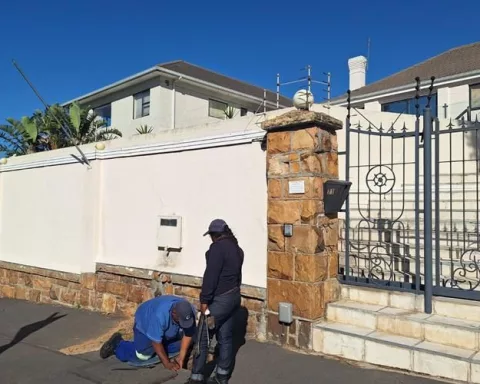Cape Town is on a journey to make its city better by listening to its people. They are changing the rules for city planning to include everyone’s opinions, especially about important issues like affordable housing. The city is hosting meetings where residents can ask questions and share ideas, ensuring that the voices of the community are heard. This approach is all about working together to create a vibrant city that keeps its charm while growing and adapting to the needs of its diverse neighborhoods. As Cape Town moves forward, it aims to build a city that truly reflects the dreams and desires of its residents.
What is Cape Town’s Vision for Urban Development?
Cape Town’s vision for urban development focuses on a community-centric approach that emphasizes participatory governance. The city is revising its Municipal Planning By-law (MPBL) to include resident feedback, enhance transparency, and address urgent urban challenges like affordable housing and sustainable growth.
Revisiting Municipal Planning in Cape Town
Cape Town, renowned for its breathtaking landscapes and bustling urban life, embarks on a transformative journey to refine its Municipal Planning By-law (MPBL). This initiative seeks to harmonize urban expansion with preservation efforts, a challenging yet crucial endeavor for the city. At the core of this process lies the active involvement of Cape Town residents, who are encouraged to engage with the proposed revisions.
Released on July 22, 2024, the draft revised MPBL has attracted the attention of city planners, local residents, and various stakeholders. Acknowledging the importance of public participation, Cape Town’s city officials extended the feedback deadline to October 25, 2024. This gesture highlights the city’s dedication to fostering an inclusive dialogue, allowing ample time for community members and resident associations to evaluate the changes and share their perspectives.
To deepen community engagement, the city has arranged two additional clarification meetings. These sessions offer a platform for residents to gain insights and pose questions about the draft by-law. An online meeting on October 15, 2024, caters to those favoring virtual attendance, while an in-person gathering in Mitchells Plain on October 22, 2024, accommodates those who prefer face-to-face interactions. This dual format ensures wide accessibility and inclusivity in the discussions.
Participatory Governance in Urban Planning
These meetings represent more than procedural steps; they embody Cape Town’s pledge to participatory governance. This approach reflects a growing global trend in urban planning that values civic engagement and transparency. Over recent decades, cities worldwide have increasingly adopted public consultations to democratize planning processes, echoing the participatory design movement of the 1960s, which championed user involvement in decision-making.
Accessibility to information plays a vital role in effective community participation. The City of Cape Town has made key documents available online, enabling residents to provide informed feedback. These resources include the draft MPBL, summaries of proposed changes, explanatory notes, and maps highlighting areas designated for affordable rental developments. Such transparency not only aids understanding but also builds trust between the city and its citizens.
Deputy Mayor and Mayoral Committee Member for Spatial Planning and Environment, Alderman Eddie Andrews, strongly supports this participatory approach. His remarks underscore the significance of meaningful dialogue, acknowledging the interest and time invested by residents. This engagement reflects a collective ambition to see Cape Town evolve in a way that honors its diverse communities and environments.
Addressing Urban Challenges and Historical Perspectives
Cape Town, like many global cities, grapples with the dual challenge of fostering growth while preserving its distinctive character and natural allure. The urgent need for affordable housing, sustainable development, and thoughtful land-use planning has never been more pronounced. The proposed MPBL amendments aim to tackle these challenges, with measures such as additional land use rights for affordable rental flats addressing the city’s housing needs.
Historical parallels provide valuable insights into current urban planning challenges. The early 20th-century Garden City Movement, for example, sought to balance urban expansion with green spaces and community-focused design. Cape Town today faces a similar dilemma: how to grow while retaining the elements that make it unique. The city’s efforts to revise the MPBL can be viewed as a modern adaptation of these enduring urban planning issues.
The upcoming meetings offer fertile ground for discourse. Residents, equipped with knowledge and vested interests, will bring diverse viewpoints to the discussions. This diversity ensures that the resulting by-law is not only thorough but also reflective of Cape Town’s varied needs and aspirations.
The Path Forward for Cape Town
As the public participation period concludes on October 25, 2024, city officials face the challenging task of synthesizing the feedback received. This process extends beyond administrative duties; it presents an opportunity to refine the MPBL in ways that resonate with the community’s collective voice. Cape Town’s commitment to this iterative process aligns with the collaborative ethos promoted by urban thinkers like Jane Jacobs, who advocated for people-centered urban spaces.
In this pivotal moment, Cape Town stands at a crossroads. Decisions made now will echo throughout the city’s streets and neighborhoods, profoundly shaping its future. The draft MPBL signifies more than a legal document; it embodies a vision for a city striving to balance progress with preservation and inclusivity with innovation.
Through these concerted efforts, Cape Town reaffirms its dedication to valuing residents’ insights, ensuring that development occurs not in isolation but in harmony with the people who call the city home. As Cape Town listens, learns, and adapts, it paints a picture of urban governance that is both dynamic and grounded in the rich tapestry of its community’s voice.
“`markdown
What is Cape Town’s vision for urban development?
Cape Town’s vision for urban development emphasizes a community-centric approach that prioritizes participatory governance. The city is restructuring its Municipal Planning By-law (MPBL) to incorporate feedback from residents, enhance transparency, and address pressing urban challenges, particularly affordable housing and sustainable growth.
How is Cape Town involving residents in the planning process?
Cape Town is actively encouraging resident participation through various meetings where community members can voice their opinions and ask questions about the proposed changes to the MPBL. The city has extended the feedback deadline to October 25, 2024, and organized two clarification meetings—one online and one in-person—to facilitate wider engagement.
What are the key components of the revised Municipal Planning By-law?
The revised MPBL focuses on harmonizing urban expansion with preservation efforts, aiming to address urgent needs such as affordable housing. Proposed amendments include additional land use rights for affordable rental flats, reflecting the city’s commitment to tackling urban challenges while enhancing community living.
Why is participatory governance important in urban planning?
Participatory governance is crucial as it fosters civic engagement and transparency in the planning process. By involving residents in decision-making, Cape Town is adhering to a global trend that values public input, ensuring that urban development reflects the diverse needs and aspirations of its communities.
What resources are available for residents to understand the proposed changes?
The City of Cape Town has made key documents available online, including the draft MPBL, summaries of proposed changes, explanatory notes, and maps indicating areas designated for affordable rental developments. These resources facilitate informed feedback and enhance community understanding of the planning proposals.
What will happen after the public participation period concludes?
After the public participation period ends on October 25, 2024, city officials will synthesize the feedback received from residents. This process will help refine the MPBL to better align with the community’s collective voice, ensuring that the resulting by-law reflects the diverse needs and aspirations of Cape Town’s residents.
“`












